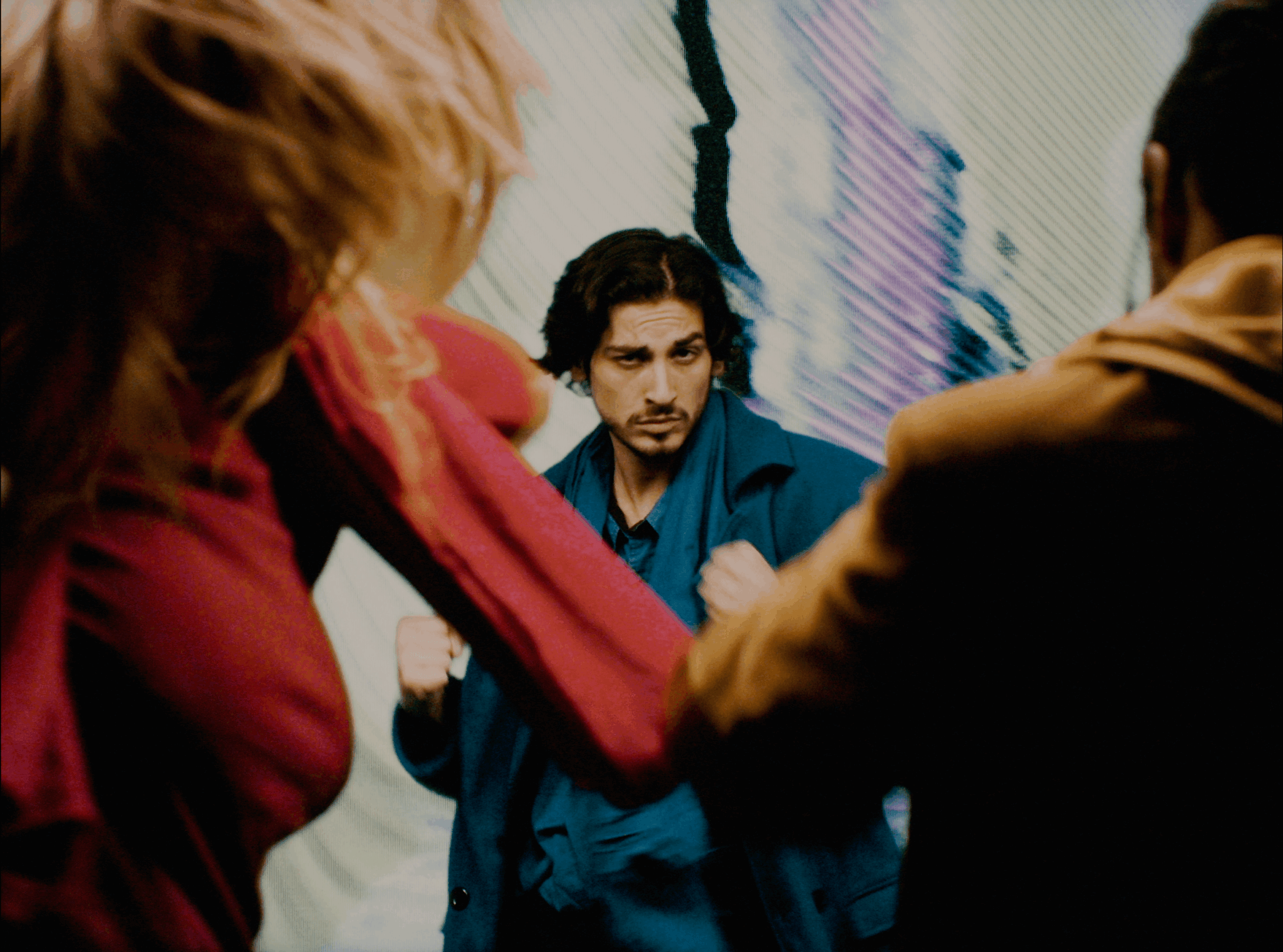Alright – so today we’ve got the honor of introducing you to A. Piriyapokanon. We think you’ll enjoy our conversation, we’ve shared it below.
A., thanks for taking the time to share your stories with us today We’d love to hear about a project that you’ve worked on that’s meant a lot to you.
Every project I’ve worked on holds meaning in its own way, and it’s hard to choose just one. But if I had to, “Right Before Your Eyes” would be the one that’s stuck with me the most. It was the first time I tackled a political narrative, specifically the enforced disappearances of Thai activists. These were stories meant to stay buried. I grew up surrounded by. the mass media that looked away, that erased instead of remembered. Making that film was a shift in my practice. I realized I didn’t want to use media to distract, I wanted to use it to confront.
It wasn’t a polished process in anyway. I had almost no support. but there was an urgency to it. I wrote it from the perspective of people living with loss, whose grief was invisible. And it clicked for me; filmmaking wasn’t just about storytelling. It was about resistance.
My latest film, “One Shot Is All It Takes”, continues that thread. It’s my thesis film at the School of the Art Institute of Chicago, but also a personal reckoning. I was 12 when I saw a military coup took over the TV for the first time in my life. In that random morning, the screen stopped being entertainment, it became control. That moment shaped how I see media, and how it shapes us.
This film looks at how narratives can be used to disempower, to cast people into spectators in their own lives. It weaves pop culture, like Power Rangers, with my personal memory, asking what it means to take back authorship. Like my first film, it’s about reclaiming a narrative power that was never meant to be ours, and showing that sometimes, one shot is all it takes to shift the story.

A., before we move on to more of these sorts of questions, can you take some time to bring our readers up to speed on you and what you do?
I’m a filmmaker and interdisciplinary artist from Bangkok, Thailand. My journey into filmmaking started from growing up in a society shaped by censorship. I witnessed firsthand how it erased people, rewrote truths, and protected those in power. Having consumed only what the state allowed, I knew I had to respond. Filmmaking became my way of doing that.
My work centers on stories that often go untold, those of the marginalized, the disappeared, and the silenced. I work across narrative, documentary, experimental, and hybrid forms. I’m not interested in following cinematic conventions, rather I’m more focused on challenging them, especially when those rules serve to uphold authority. My films blur the lines between fiction and reality, beauty and brutality, memory and mass media.
I believe in using media against itself. Every project of mine starts with real people. I spend time listening, interviewing, and understanding their stories, which then shape the work I create. The goal of this is to make films that don’t just show, but also push boundaries.
At the core of my films, it’s not just about telling stories, it’s about power. Who holds it, who loses it, and how we can reclaim it.

We often hear about learning lessons – but just as important is unlearning lessons. Have you ever had to unlearn a lesson?
I came from a traditional film school, where I was taught the classic structures like the three act rule, the eight sequence arc, the idea that every story has a clear path with a beginning, middle, and end. That training gave me solid technical skills and a strong foundation in production, which I still rely on today. But as I grew as an artist, I began to feel the limitations of that approach.
I realized that if I wanted to challenge dominant narratives, especially in a place like my hometown where media is often used to control, I couldn’t just follow the same structures those narratives are built on. So I had to unlearn the idea that stories always had to unfold in a certain way and to question the rules themselves.
That meant experimenting with new forms, blending fiction, non-fiction, and anti-cinema techniques to mirror the complexity and fragmentation of the truths I wanted to tell.
However, I’m still grateful for my training. It gave me the craft and the hard skills. Now, even when I work outside the traditional framework, I know exactly how it works, and I’m continuing to learn how to break it.

What do you think is the goal or mission that drives your creative journey?
Simply because I believe there’s still room for change, and I want to be part of that change. Film is the medium I have chosen, so I’ll keep using it.
I don’t think any one film can change power structures overnight, but I do believe in repetition, in small acts that slowly build into something bigger. Even if the effect isn’t immediate, the act itself matters. Each film becomes part of a larger push, part of the counter-memory.
I think of myself as someone who’s lucky enough to keep making what I believe in. That’s all I can do. Keep going. Keep making. And trust that somewhere, it keeps pushing the movement forward.
Contact Info:
- Website: https://www.apiriyapokanon.com
- Instagram: youraomishere
- Other: https://vimeo.com/apiriyapokanon






Image Credits
A. Piriyapokanon
Panisa Khueanphet
Krittipat Naiwatanakul
Yujian Wang
Chutikarn Boonsutti


